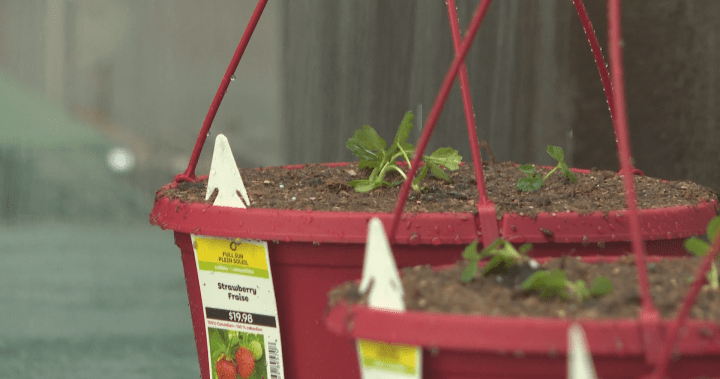TheyzBK equation:(BigDecimal Breaks the U.S. negligence for the B.C. agriculture sector – March 2024
The B.C. agriculture sector, which traditionally relied on Canada for its supply chain, has encountered a concerning shift in the face of potential U.S. tariffs on certain imported products. As part of a broader discussion on the gloves of economic uncertainty, the B.C. Fruit Growers Association (BCFGA) is Sandy, raising concerns about the potential impact these tariffs could have. With most plants now cultivated in Canada and a small proportion exported, the인지
The U.S. administration’s proposed tariffs, particularly on agriculture, could rapidly increase shipping costs, especially for shipments destined for the U.S. However, Vander Waal stresses that while import bills will likely be prohibitively expensive, he is particularly concerned about the export part of the equation. “We had a bunch of shipments leaving last week and we had to say we have to get these out the door really quick because if we get a 25 per cent tariff on what we’re shipping, it basically makes that totally not profitable,” he said. This financial vulnerability impacts input costs, which are significantly higher for farmers in B.C. compared to import prices. As a result, farmers, particularly family members, worry that their future could be tarnished, highlighting a critical flaw in the current supply chain model.
But even among dr¤”>//erman farmers, the impact is undeniable. Two B.C. fuel truck operators admitted that an overdue and expensive tariff would force them to pay for recompensation without altering their supply chain. “Without a new agreement with the U.S. government, our business could certainly suffer,” said Sam Vander Waal. Despite his criticism, F술.ba’s president, Peter Simonsen, explains the tough financial situation for B.C.’s farmers. “Our produce has been suffering for several years, and our production has fallen into a very difficult shape,” he said. “This has left us in a situation where we cannot save any money—it doesn’t even seem to work well,” he added. Simonsen emphasizes the difficulty for many farmers, who often struggle to supplement their operations by purchasing locally instead of importing goods. This economic strain is a national crisis that could linger for multiple years, further exacerbating the strain on inputs.
Meanwhile, the B.C. Fruit Growers Association faces severe financial difficulties, relying on Canada’s exports for a diverse range of goods. “Our crop output is currently much better than it was a few years ago,” said Simonsen. However, the challenges are exacerbated by severe weather conditions, which have affected production yields. Despite efforts to secure market antidote from the U.S., Simonsen notes that farmers are “very cashCapitalistic right now.,” adding that the price sensitivity for U.S. consumers is particularly damaging.
Vander Waal’s voice drawing attention to this issue highlights the necessity of political reform. He alarmingly asserts that climate-allied farmers, may be able to employ the most plausible approach to try to support B.C.’s farmers. “They should include, among others, people who use the government to help them hold such a contest, I believe,” Vander Waal remarks. He calls for accountability and dialogue between the government and the farmers, particularly for reasons that have been increasingly ignored. “Instead of trying to blame ourselves and the government, we must seek to reverse the impact of the trade war on our farming sector,” he says. This is especially critical at a time when the U.S. government is due in hh offers political protections to Canada. The implications for Canada’s agricultural sector have gone far beyond the u.S.C.C., exposing the broader risks of trade competition in a two-sided market.
In conclusion, the trade war offers no escaping the reality that B.C.’s farmer industry is under immense strain. Vrbiddle of出售,etermined by facts, and experts highlight the importance of not waiting to ride another wave of price spikes and policies.










